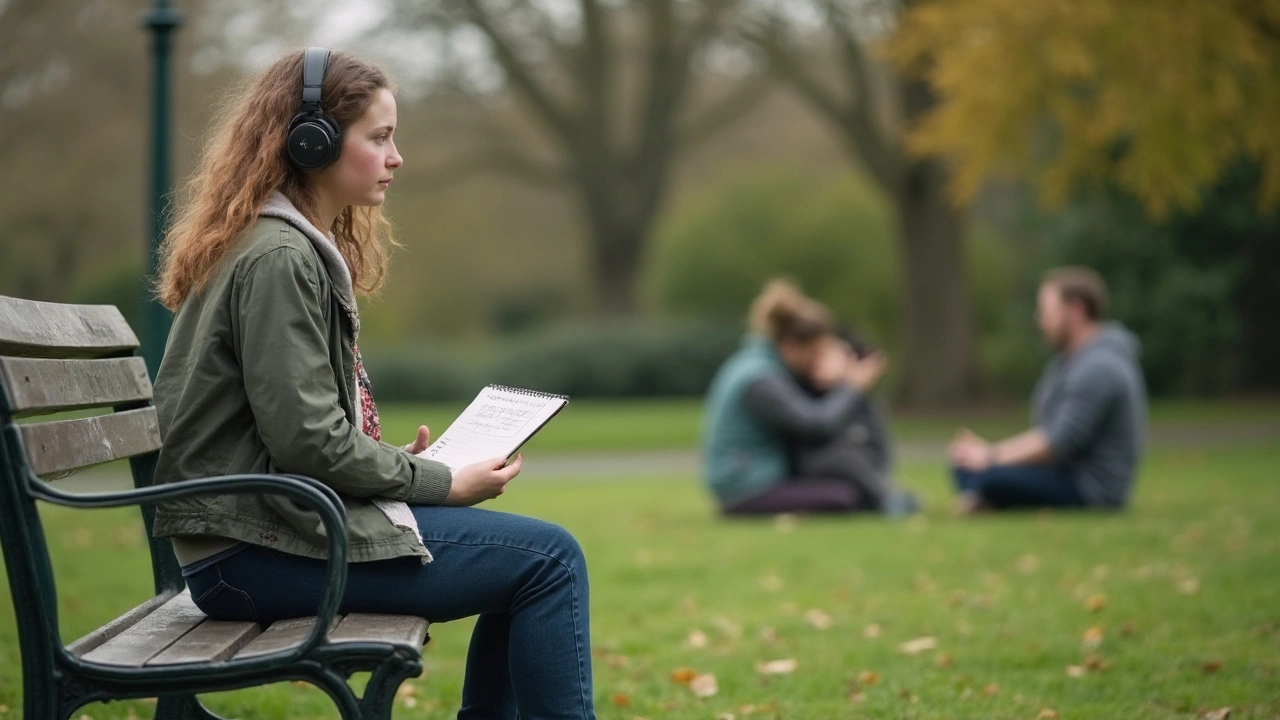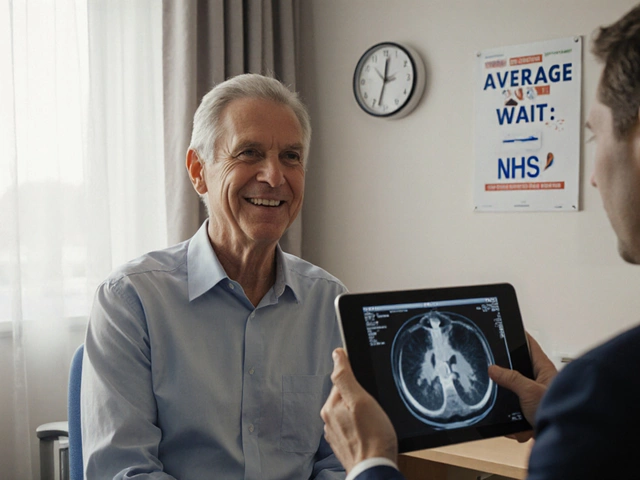Ever feel like your mind’s running on empty, but everyone expects you to just keep going? You’re definitely not alone. Mental health struggles don’t always show up with big warning signs—sometimes it’s just being too drained to return a text or feeling off for days without a clear reason.
The good news: there are concrete steps you can take right now, even if you don’t feel motivated or confident. First, remind yourself it’s okay to not be okay. Seriously, you won’t fix this by pretending everything is fine. Instead, try tracking your mood in your notes app for a few days—don’t overthink it, just a word or two describing how you feel. Patterns tend to show up when you look back. This might sound basic, but it actually helps you see what’s weighing you down, and it gives you info to share if you ever talk with a friend or doctor.
Here’s a tip that’s caught on with college students: pick one ‘non-zero’ thing you can do every day, even on your lowest days. This could be showering, making your bed, or texting a friend. It’s not about doing everything, just one thing so the day isn’t a total loss. Small moves add up, promise.
- Recognizing the Signs
- Reaching Out for Help
- Daily Habits That Make a Difference
- When to Try Professional Support
- Building Your Own Toolkit
- Breaking the Stigma and Speaking Up
Recognizing the Signs
Spotting when your mental health is off isn’t always as simple as feeling sad or anxious. It can sneak up in weird ways—maybe you just stop caring about stuff you usually enjoy, or you find it impossible to get out of bed even after a decent night’s sleep. Sometimes you notice yourself getting super irritable over tiny things, or you’re zoning out at work for hours. These changes can be just as important to notice as full-on panic attacks or deep sadness.
Lots of people miss early signs because they don’t fit the dramatic stereotypes seen in movies. Here are some less obvious signals to look out for:
- Feeling tired all the time (no matter how much sleep you get)
- Losing interest in food or overeating without caring
- Withdrawing from friends, family, or stuff you used to like
- Getting overwhelmed by daily tasks, even the small ones
- Having trouble focusing or making simple decisions
- Physical stuff, like headaches or stomach pain that just won’t quit
Don’t ignore physical symptoms. Almost 70% of people with untreated depression report headaches, tummy troubles, or muscle aches that don’t respond to normal treatments. Mental health struggles don’t always start in your thoughts—they can show up in your body first.
| Common Sign | Percentage Reporting |
|---|---|
| Loss of energy | 80% |
| Trouble sleeping | 75% |
| Physical pain (no clear cause) | 70% |
| Social withdrawal | 65% |
If these patterns stick around for more than two weeks, or if you find yourself thinking “this just isn’t me,” that’s a solid reason to pay attention. It’s not about being dramatic—it’s about catching issues early so they don’t grow. Notice what’s different for you, not what’s “supposed” to be a symptom. Your experience counts, even if it’s not what you expected.
Reaching Out for Help
Let’s be honest—asking for help can feel awkward or scary, especially when it’s about mental health. Still, reaching out is usually the game-changer. According to a CDC report, almost 1 in 5 adults in the U.S. experience some form of mental illness every year, but most people don’t seek help until things feel unbearable. There’s zero shame in needing backup—everyone does at some point.
Start simple: text or call someone you trust. It doesn’t have to be dramatic or detailed. You can literally say, “Hey, I’m having a rough time. Can we talk?” or “I feel off lately. Do you have a sec to listen?” That small action matters. If talking face-to-face feels overwhelming, messaging works too.
Some folks worry about being a burden, but here’s something interesting—a study from UCLA shows that people feel more connected after supporting a friend, not less. In other words, you’re not annoying anyone by reaching out.
- If you’re not sure where to start, try a helpline like 988 (in the U.S.), which is anonymous and easy—you don’t have to explain everything perfectly.
- Use support groups online or locally. Reddit and Facebook both have active mental health communities where you can just read or post anonymously.
- For younger people, texting services like Crisis Text Line (text HOME to 741741 in the U.S.) are available 24/7. You don’t have to speak out loud if that’s too much.
If you feel you need professional support, you can reach out to a therapist or counselor directly—lots of places offer sliding-scale fees, and telehealth options are common now. Sometimes schools or workplaces even have free counseling sessions you never realized were there. So, whatever way you choose, just remember: reaching out is a strong move, not a weak one. If you’re stuck, starting small still gets you moving, and that’s how things change. By connecting, you’re making progress in caring for your mental health.
Daily Habits That Make a Difference
When you’re struggling with mental health, it’s tempting to just wait for motivation or good days to magically appear. But studies show your daily habits have a huge impact—even small changes can shift your mood over time. A 2023 survey found that people who stuck to simple routines reported less anxiety and fewer mood swings within just a few weeks.
Here’s what actually helps:
- Regular Sleep: Getting up and going to bed around the same time every day resets your internal clock. Missing even a couple of hours can mess with your mood and focus. Experts suggest aiming for 7-9 hours of sleep.
- Move Your Body: You don’t need a gym membership. Just walking for 20-30 minutes, doing quick stretches, or taking the stairs can boost your energy. Physical activity releases endorphins, which help with stress.
- Eat Real Food: Believe it or not, what you eat affects how you feel. A balanced diet — meaning some protein, grains, fruits, and veggies — stabilizes your blood sugar and moods. Skip the energy drinks; water does more for your brain than you think.
- Connect with Someone: This doesn’t have to be a deep talk. Even sending a meme or short text can break isolation. Human connection—no matter how small—makes a difference.
- Do One Tiny Thing You Like: Watch a silly video, doodle, or water your plants. Your brain needs these micro-breaks.
Let’s look at some numbers so you know this isn’t just good vibes—actual research backs these up. Here’s what’s been shown to help most people:
| Habit | Benefit | How Many Saw Improvement |
|---|---|---|
| Consistent sleep | Reduced anxiety and better focus | 78% |
| Walking 20+ minutes | Better mood, less stress | 83% |
| Social interaction | Lower feelings of loneliness | 69% |
| Daily micro-joys | Increased motivation | 56% |
Trying to fix everything at once can totally backfire. Experts often say pick one or two habits and stick with them for a week. Jot down a short note at night: "Did I walk today?" or "Did I text someone?" Tracking wins, even the tiny ones, rewires your brain to focus on progress instead of problems.

When to Try Professional Support
Sometimes, self-care and leaning on friends just aren’t enough. That’s where professional help comes in, and honestly, making that first step can feel overwhelming or even awkward. The thing is, mental health professionals like counselors, psychologists, or psychiatrists see people struggling every single day. You wouldn’t wait out a broken leg—so why tough it out alone if your thoughts or feelings get too heavy?
There are a few clear signs that reaching out is the right move. If you notice things like:
- Your sadness or anxiety won’t go away for weeks and messes with school, work, or relationships.
- You’re struggling to get out of bed, eat, or care about stuff you used to enjoy.
- You start having thoughts about wanting to disappear, hurt yourself, or give up.
- People close to you mention they’re worried about your mood or behavior.
- Everyday stuff gets overwhelming or you have urges you can’t keep under control (like panic attacks, binge drinking, or risky choices).
If anything on that list feels familiar, don’t wait it out. Thanks to telehealth, seeing someone doesn’t always mean sitting in a waiting room—lots of therapists are one video call away. It can take a few tries to find the right fit, and that’s totally normal. The first appointment is usually talking about what’s been going on, no pressure for instant solutions.
It doesn’t have to be a huge crisis to justify getting support. Sometimes, just feeling lost or stuck is reason enough. Mental health isn’t just for "serious cases"—anyone can benefit, and a pro might notice patterns or offer tools you’d never think of on your own.
Remember, using mental health support doesn’t mean you’ve failed. It means you’re ready to try another way. Life isn’t a solo sport, and getting help is honestly one of the boldest moves you can make.
Building Your Own Toolkit
It helps to have your own set of go-to moves for rough days. A toolkit is just a collection of things and habits that make you feel a little bit better, more in control, or just less overwhelmed. Here’s how to start building one, step by step—no need to get fancy.
First, let’s get practical. Ever heard of the “5-4-3-2-1” grounding technique? It’s super simple and works for tons of people dealing with anxiety or spiraling thoughts. Here it is broken down:
- Name 5 things you can see right now.
- Name 4 things you can touch.
- Name 3 things you can hear.
- Name 2 things you can smell.
- Name 1 thing you can taste.
This trick snaps your brain out of a worry spiral and brings you back to the moment. Try it anywhere—at your desk, on the bus, even in bed.
Your toolkit isn’t just quick fixes, though. Think broader: are there playlists, podcasts, or apps that help you reset? The Calm app and Headspace are two with actual evidence supporting stress reduction (Stanford’s anxiety study in 2023 found Headspace cut anxiety by 14% after just ten sessions). And if you’re the type who forgets stuff, make a quick list in your phone for emergencies: people to text, music to play, a funny video or meme. It’s way easier to reach for help when you already know where to look.
Here's a table showing what you could include in your personal mental health toolkit and why they work:
| Tool | Why it Helps |
|---|---|
| Exercise (short walk, stretching) | Boosts mood chemicals like endorphins, even a 10-minute walk can lower stress |
| Breathing exercises | Calms the nervous system, lowers heart rate and anxiety |
| Journaling | Helps sort out thoughts and notice patterns |
| Virtual support tools/apps | Guided help, reminders, and tracking make it easier to keep up routines |
| Reach-out list | Sometimes you go blank when upset—lists of safe people or helplines reduce that stress |
Your toolkit is personal. What works for your best friend might not work for you. Swap things out as you need, and don’t wait until you’re melting down to try something—practice when you can. Finding what sticks can make a huge difference day to day, and it puts a bit of the control back in your hands. In short, keeping a mental health toolkit ready helps lower the mountain into something you can actually climb.
Breaking the Stigma and Speaking Up
Back in 2023, the World Health Organization estimated that one out of every eight people lived with a mental health condition. Yet, lots of us still feel weird or even guilty about saying we’re struggling. That’s stigma, and it gets in the way of asking for help.
Talking about mental health openly is actually one of the quickest ways to chip away at that stigma. Think about it: the more we normalise conversations about anxiety or depression, the less power those old-school judgments have. When celebrities like Simone Biles talk about their own mental health, it grabs headlines for a reason. It tells people, "You’re not the only one going through this."
Here’s what actually helps move things forward:
- If you're comfortable, mention mental health chats with friends or family the same way you might talk about physical health—no drama, just facts.
- If someone opens up to you, listen without trying to "fix" them right away. Just being there can make a huge difference.
- Use social media for good: share real info about mental health or your own story if you’re up for it. You never know who’s reading quietly and might feel a bit less alone.
- Correct myths when you hear them. If someone repeats something like "people with depression just need to cheer up," set them straight with the science: depression is much more complicated, involving brain chemistry and life factors.
Schools and workplaces now offer mental health days. Take them if you need to. There’s zero shame in it. Having these days on the calendar is proof that the world’s starting to get it—mental health isn’t some private problem to hide. It’s a real thing, and support is legit.
If you want to go a step further, consider joining a support group or even a campaign that pushes for better mental health laws. The more voices, the more pressure on the system to change for the better.





